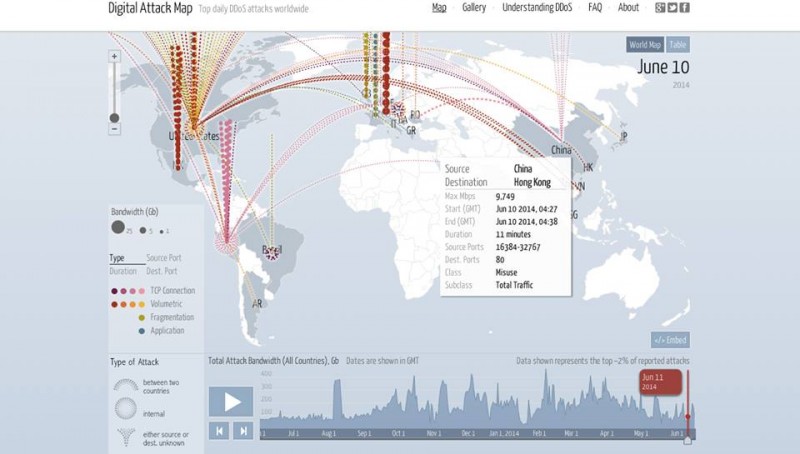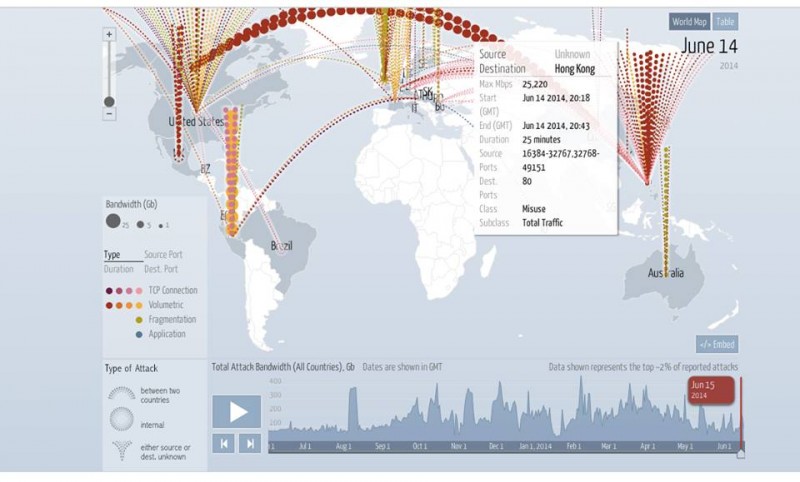The hacker collective Anonymous has launched a series of attacks on World Cup sponsors and other affiliates, stealing data and taking over websites.
On Thursday, Anonymous took credit for taking down sponsor Yingli Solar, a Chinese solar power company, as well as breaching the network of Globo TV Brasil, Brazil’s largest television network, and publishing employee details online.
The group has also targeted a number of Brazilian governmental bodies, including the Ministry of the Environment and the Military Police of Sao Paulo State.
On Friday, Anonymous used a DDoS attack to bring down the 2014 World Cup site for several hours. Later that day, the group bragged about its alleged conquests: “Anonymous 145 x 0 FIFA.”
#OpHackingCup #OpWorldCup partial score: Anonymous 145 x 0 FIFA. The game continues. Expect us http://t.co/sPiUQxeAHO pic.twitter.com/HOYAz1jwRy
— Anonymous Brasil (@AnonBRNews) June 20, 2014
The hacks have been publicized under hashtags including #OpMundial2014, #OpWorldCup, and #OpHackingCup.
The cyber security company Symantec, which tracks cyber attacks, issued a notice on the eve of the World Cup warning potential targets of likely ploys, “including ‘run-of-the-mill’ distributed denial of service (DDoS) attacks, phishing/spear-phishing emails, intrusion and data-theft attempts, vulnerable software exploration, web application exploits, and possibly website defacement.”
Anonymous has been vocal about its plans to disrupt the World Cup. In February, several alleged Anonymous members told Reuters that they planned to go after sponsors as well as the Brazilian government during the tournament, noting that the massive audience would serve as a useful stage to protest the expense of the World Cup games—estimated at $14 billion—in a country where many citizens still lack access to basic services.
In May, Anonymous hackers broke into the Brazilian Foreign Ministry’s computers and leaked confidential emails. Stating that the group had “a plan of attack,” one hacker told Reuters that World Cup sponsors would be Anonymous’s prime targets, naming Coca Cola, Budweiser, and Adidas.
Despite the longstanding threats, Brazil was widely seen as a sitting duck for hackers, in large part because of its aging telecommunications infrastructure. “I don’t think there is much they can do to stop us,” one hacker told Reuters.
#FIFA #WorldCup Brazil 2014 “http://t.co/zifMy1At60 ” HACKED AGAIN! pic.twitter.com/aW0vjxc02C
— Anonymous (@OpGreenRights) June 19, 2014
Last June, hackers replaced the FIFA World Cup homepage with a video showing protesters marching against public transit fare increases, which spurred mass protests around the country. In the video, the protesters, who chant “sem violencia” or “without violence” throughout, eventually encounter a line of police officers, who respond with rubber bullets and tear gas. That month, the UN High Commissioner for Human Rights called on Brazilian authorities to rein in their use of force against peaceful demonstrators. In March of this year, officials in Rio de Janeiro and Sao Paulo announced the rollback of the cities’ respective fare increases.


